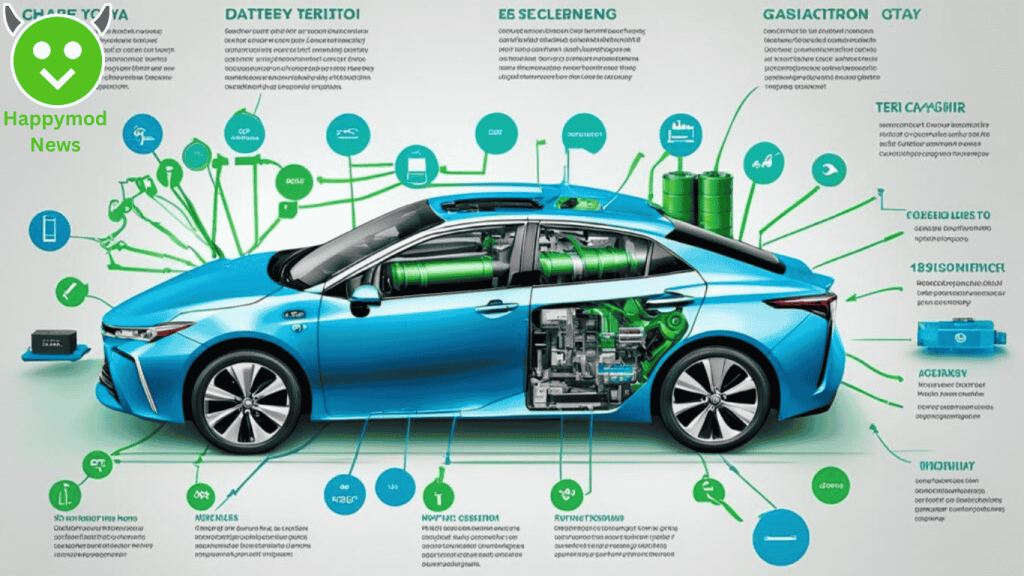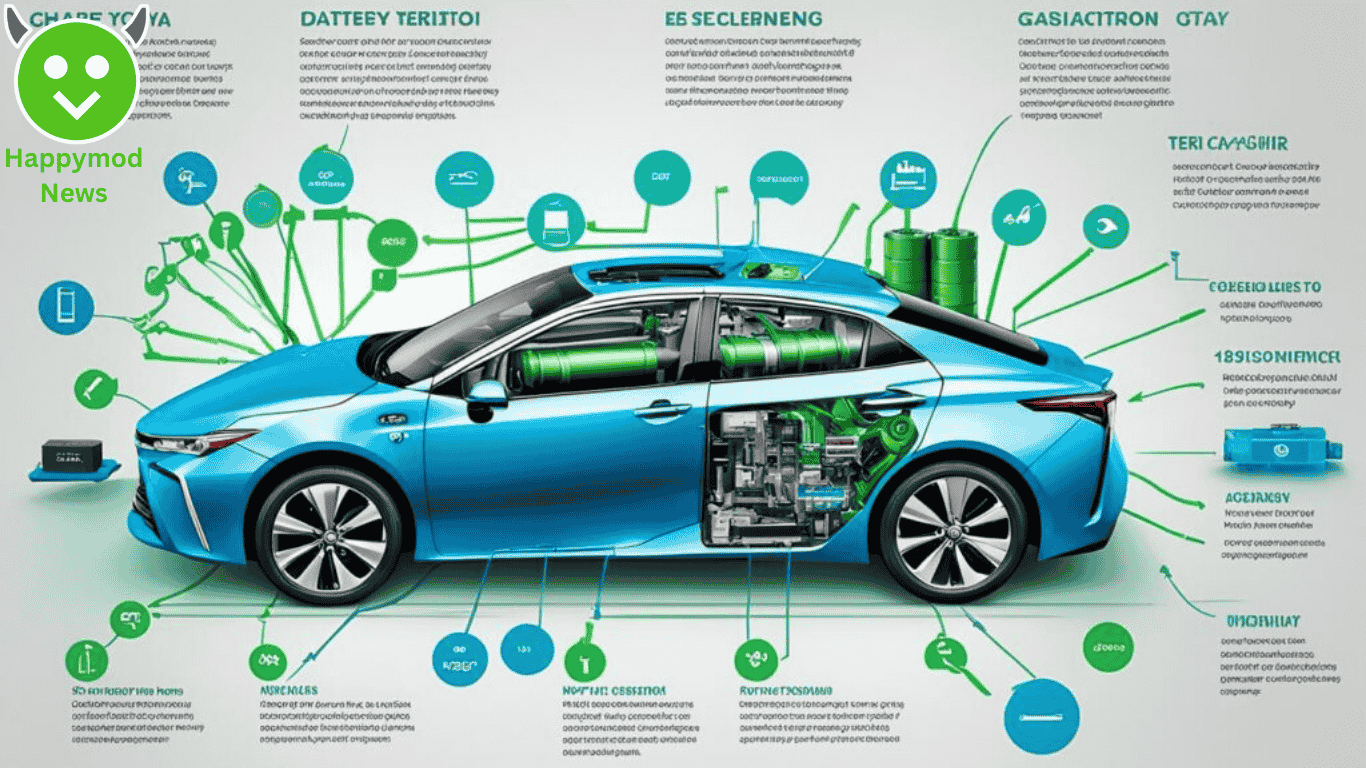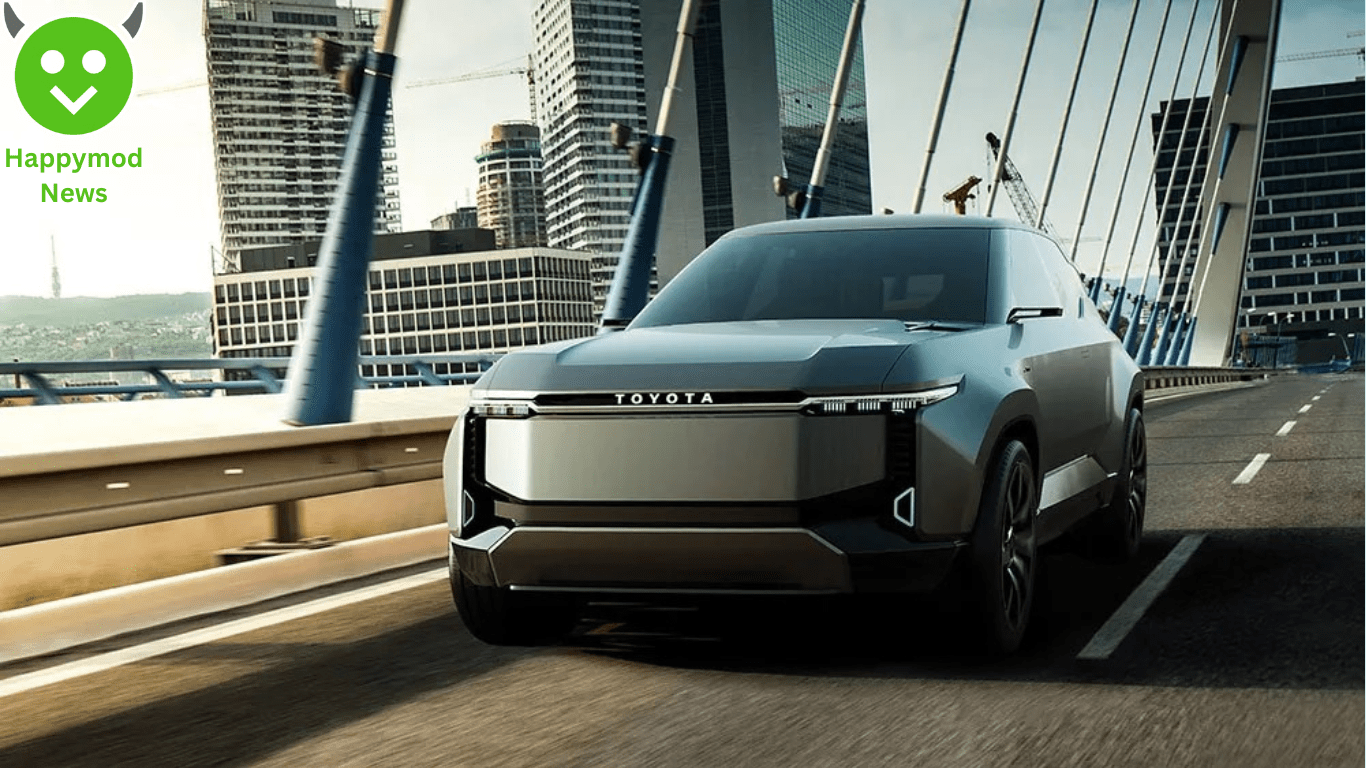Introduction to Hybrid Vehicles
Hybrid vehicles are the perfect fusion of gasoline engines and electric motors. By using a combination of both, hybrids are able to improve fuel efficiency and reduce carbon emissions, making them more eco-friendly than traditional cars. In a world where environmental concerns are rising, hybrid vehicles offer a practical solution without compromising on performance.
The Birth of the Toyota Prius
When you think of hybrid cars, Toyota Prius is probably the first vehicle that comes to mind. Launched in 1997 in Japan, the Prius was the world’s first mass-produced hybrid car. It was a game-changer that quickly gained popularity across the globe. The Prius’ success not only helped Toyota become a household name but also marked the beginning of a shift in the automotive industry towards more sustainable solutions.
Toyota’s Commitment to Sustainability
Toyota has long recognized the importance of sustainability, and the company’s commitment to hybrid technology is a testament to that. Toyota has set ambitious goals for reducing carbon emissions and building vehicles that are more environmentally friendly. Through continuous innovation and a focus on eco-friendly alternatives, Toyota is working to create a greener, cleaner future for generations to come.
Innovations in Toyota Hybrid Technology
Over the years, Toyota has introduced several innovations to improve the performance and efficiency of their hybrid vehicles. For example, Toyota’s Hybrid Synergy Drive technology allows their hybrids to seamlessly switch between the electric motor and the gasoline engine for maximum efficiency. This technology has evolved over time, and Toyota continues to enhance it with each new model.

Toyota has also focused on the development of high-capacity batteries, allowing their hybrids to travel longer distances on electric power alone. This innovation is key to improving fuel efficiency, reducing emissions, and enhancing the overall driving experience.
How Hybrid Technology Works
Hybrid vehicles like the Toyota Prius use both a traditional internal combustion engine and an electric motor. The electric motor is powered by a battery pack that charges itself through regenerative braking and the gasoline engine. When the car is in motion, the vehicle can automatically switch between the engine and electric motor depending on driving conditions.
For city driving, hybrids can rely more on the electric motor, saving fuel and reducing emissions. On highways, the gasoline engine comes into play, providing power for faster speeds and longer distances.
Benefits of Hybrid Vehicles for Consumers
Toyota’s hybrid vehicles come with a number of benefits that make them a great choice for consumers:
- Fuel Efficiency: Hybrids consume less fuel than traditional cars, saving drivers money at the pump.
- Lower Emissions: Hybrid vehicles produce fewer harmful emissions, contributing to cleaner air.
- Quiet Ride: Electric motors are quieter than gasoline engines, providing a smooth and silent ride.
- Government Incentives: In many countries, hybrid owners benefit from tax breaks, rebates, and other incentives.
- Long-term Savings: While hybrids can have a higher upfront cost, their fuel savings over time make them a wise investment.
Toyota’s Hybrid Models
Toyota’s hybrid lineup includes a wide range of models that cater to different needs and preferences. Some of the most popular include:
- Toyota Prius: The flagship of Toyota’s hybrid fleet, known for its exceptional fuel economy.
- Toyota Camry Hybrid: A mid-sized sedan that combines luxury with efficiency.
- Toyota RAV4 Hybrid: A hybrid version of the popular SUV, offering more space and versatility.
- Toyota Highlander Hybrid: A family-friendly SUV with an eco-friendly edge.
- Toyota Corolla Hybrid: A compact, budget-friendly hybrid that maintains Toyota’s reputation for reliability.
Each of these models offers a unique set of features while maintaining Toyota’s commitment to fuel efficiency and environmental responsibility.
The Impact of Hybrid Vehicles on the Environment
Hybrid vehicles are a crucial part of the solution to reducing the environmental impact of cars. By combining electric power with traditional gasoline engines, hybrids help reduce carbon emissions and improve air quality. This is especially important in urban areas where air pollution from vehicles can have a significant impact on health and the environment.
By driving a hybrid, you’re not only saving money on fuel, but you’re also contributing to a cleaner planet.
Toyota’s Research and Development in Hybrid Technology
Toyota invests heavily in research and development to stay ahead of the competition in the hybrid market. The company works tirelessly to improve battery technology, fuel efficiency, and the overall driving experience of their hybrids. With a focus on continuous innovation, Toyota is exploring new technologies like solid-state batteries and hydrogen fuel cells to take hybrid vehicles even further.
Challenges Toyota Faces in Hybrid Technology
While Toyota has had great success with hybrid vehicles, there are still challenges to overcome. The cost of hybrid technology remains higher than that of traditional gasoline-powered cars, which can be a barrier for some consumers. Additionally, there is still the challenge of charging infrastructure for plug-in hybrids, although this is improving over time.
Toyota’s Future in Hybrid and Electric Vehicles
Looking ahead, Toyota’s plans include expanding their hybrid and electric vehicle (EV) offerings. The company has set ambitious goals to become a carbon-neutral company by 2050, with a significant portion of their fleet expected to be fully electric or hybrid. Toyota is also working on innovative battery technologies that could make future hybrid and electric vehicles even more efficient and affordable.
Customer Experiences with Toyota Hybrids
Many Toyota hybrid owners rave about the experience of driving a hybrid. Customers often mention the smooth driving experience, the ability to save money on gas, and the environmental benefits as top reasons for choosing Toyota hybrids. Toyota’s reputation for reliability also plays a big role in consumer satisfaction, with many drivers trusting the brand’s hybrid vehicles to deliver consistent performance and durability.

Toyota’s Hybrid Technology vs. Competitors
While other manufacturers, such as Honda, Ford, and Hyundai, have entered the hybrid market, Toyota remains a leader due to its early entry and long-standing commitment to the technology. Toyota’s hybrids are often seen as more reliable and efficient than those of its competitors, largely due to the company’s focus on innovation and continuous improvement.
Toyota’s Global Influence in Hybrid Vehicles
Toyota’s influence in the global hybrid market is undeniable. The company has sold millions of hybrid vehicles worldwide, helping to shift the automotive industry towards more sustainable alternatives. With a strong presence in countries like the United States, Japan, and Europe, Toyota continues to shape the future of hybrid technology on a global scale.
Conclusion
Toyota has firmly established itself as a leader in hybrid technology, driving innovation and sustainability within the automotive industry. From the launch of the Prius to its expanding lineup of hybrid models, Toyota has continually pushed the boundaries of what is possible in the world of eco-friendly vehicles. As we look to the future, it’s clear that Toyota’s dedication to hybrid technology will continue to pave the way for a greener, cleaner future.







![The Cheapest Car Insurance Companies in the USA [2025 Edition]](https://happymod.fun/wp-content/uploads/2025/04/piclumen-1745169121216-110x85.png)











